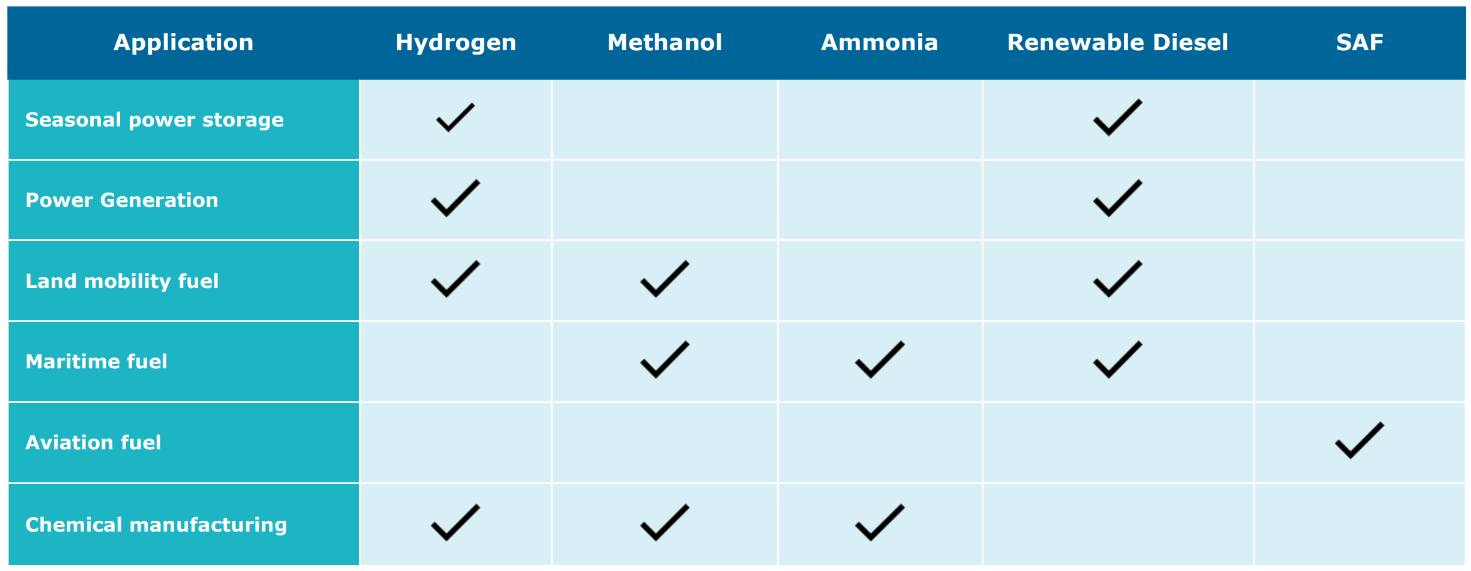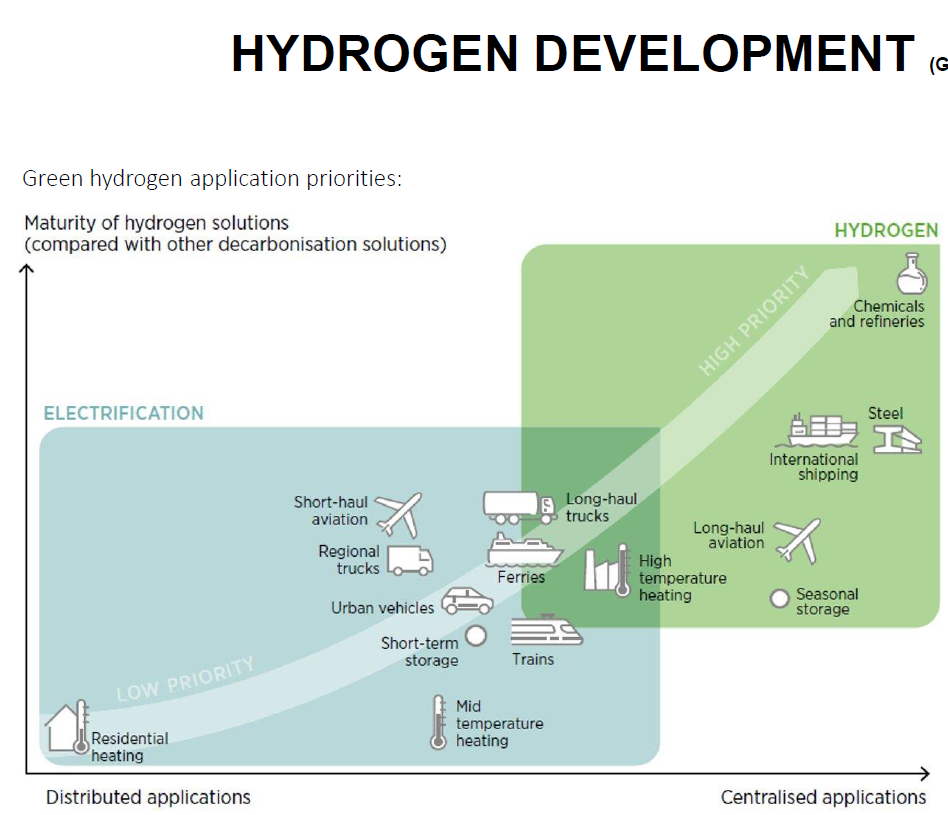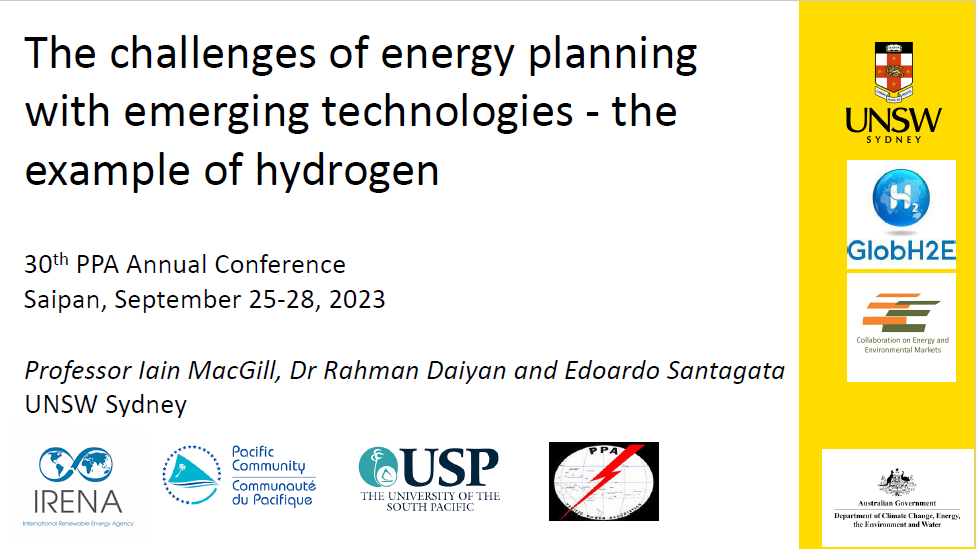The use of fossil fuels in key domestic sectors roughly equates to 23 million barrels of diesel equivalent per year, which could potentially be replaced through electrification with renewables, as well as by green hydrogen or derivatives in the Pacific Islands. The major energy consumer markets for fossil fuels in the PICTs are electricity generation, land, air, and maritime transport, creating a significant opportunity for hydrogen and derivatives:
Domestic Land Transport: An estimated ~12 TWh of energy is used by domestic land transport (with PNG, Fiji, and New Caledonia making up 80% of this energy use). Displacing this demand with H2 and derivatives could potentially displace around 7.4 million barrels of diesel equivalent per year in this sector, corresponding to 3.2 million tonnes of CO2 abated, and US $680 million worth of fossil fuel import savings per year.
Domestic Maritime Transport: An estimated ~3,600 TJ of energy is used by domestic maritime transport (Fiji and New Caledonia make up 60% of this energy use). Displacing this demand with H2 and derivatives could potentially displace around 0.6 million barrels of diesel equivalent per year in this sector, corresponding to 0.3 million tonnes of CO2 abated, and US $58 million worth of fossil fuel import savings per year.
Domestic Aviation Transport: An estimated ~4,800 TJ of energy is used by the domestic aviation sector (Fiji and PNG make up >90% of this energy use). Displacing this demand with H2 and derivatives could potentially displace around 0.8 million barrels of diesel equivalent per year in this sector, corresponding to 0.4 million tonnes of CO2 abated, and US $76 million worth of fossil fuel import savings per year.
Domestic Power Generation: An estimated ~22.4 TWh of electricity is generated in the PICTs through fossil fuels (PNG and New Caledonia) make up >90% of this energy use). Displacing this demand with H2 and derivatives could potentially displace around 14 million barrels of diesel equivalent per year in this sector, corresponding to 6 million tonnes of CO2 abated, and US $1.3 billion worth of fossil fuel import savings per year.

See Report A – Draft for Consultation











